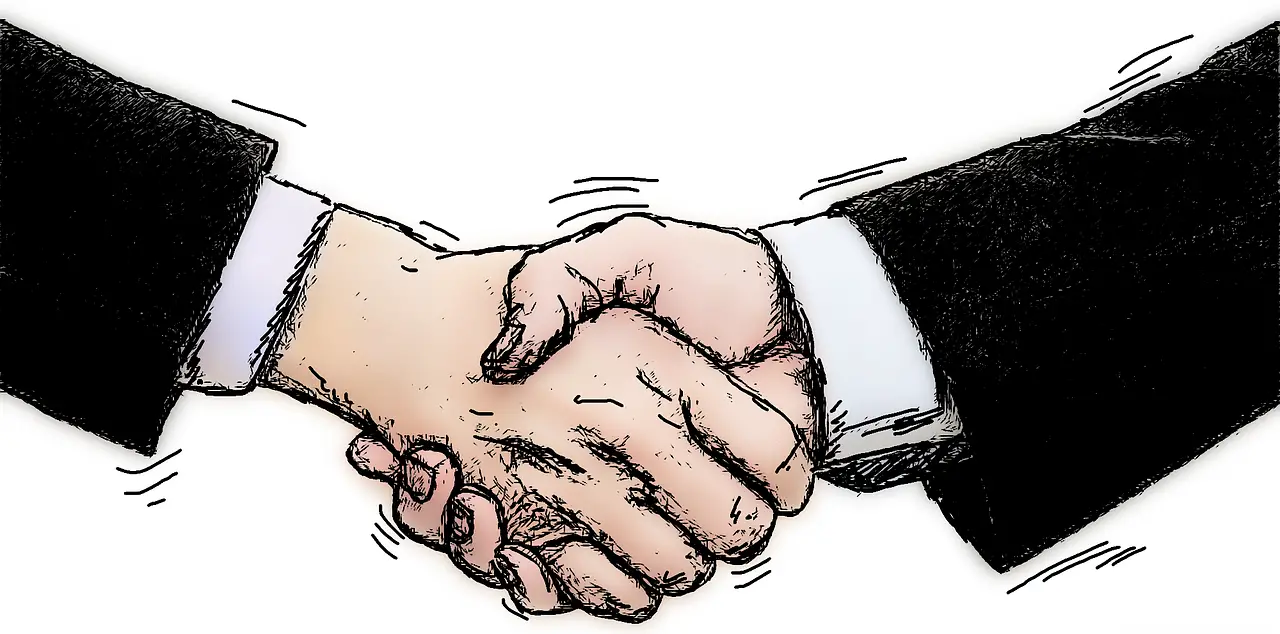Are you tired of paying exorbitant bills and subscriptions without any room for negotiation? Look no further! In this article, we will guide you through the art of mastering negotiations, helping you save money and take charge of your financial responsibilities. Whether it’s your monthly utility bill or the ever-growing list of subscriptions draining your bank account, we’ve got you covered with a comprehensive list of do’s and don’ts to ensure you become a savvy negotiator in no time. Get ready to take control and start saving!
Understanding the Importance of Negotiating Bills and Subscriptions
Negotiating bills and subscriptions may not be something that immediately comes to mind when managing your personal finances, but it is a vital skill that can have a significant impact on your financial well-being. By taking the time to negotiate bills and subscriptions, you can potentially save hundreds or even thousands of dollars each year. This comprehensive article will guide you through the process of negotiating bills and subscriptions, helping you recognize the financial impact and take control of your expenses.
Recognizing the Financial Impact
Before we dive into the details of negotiating bills and subscriptions, it’s essential to understand the financial impact this can have. Many people don’t realize just how much money they can save by negotiating better rates and terms. By evaluating your expenses and negotiating with service providers, you can potentially lower your monthly bills, reduce interest rates, and eliminate unnecessary fees. This, in turn, allows you to free up funds that can be directed towards other financial goals, such as saving for emergencies or paying off debt.

Taking Control of Your Expenses
Taking control of your expenses means being proactive and strategic when it comes to negotiating your bills and subscriptions. It starts with gathering information, assessing your needs and usage, and researching alternatives. By following these steps, you can enter negotiations armed with valuable knowledge and a clear understanding of your options.
Gathering Information
Before you begin negotiating, it’s crucial to gather information about the services you currently use and the rates offered by competitors. This information will serve as a valuable reference point during negotiations and give you leverage in seeking better deals. Take the time to research online, read customer reviews, and compare prices, so you have a solid understanding of the current market rates.
Assessing Your Needs and Usage
To negotiate effectively, it’s vital to have a clear understanding of your needs and usage patterns. Take the time to assess your requirements and determine if there are any ways you can reduce or adjust your usage. For example, if you’re spending excessive amounts on data plans for your mobile phone, you may be able to negotiate a better deal by adjusting your plan to better suit your actual usage.
Researching Alternatives
In addition to assessing your current needs and usage, it’s essential to research alternatives. Explore what other service providers are offering in terms of rates, packages, and promotions. By having a comprehensive understanding of the alternatives available to you, you can approach negotiations with confidence and leverage.
Applying Negotiation Tactics
Negotiation is both an art and a skill, and with the right tactics, you can increase your chances of success. Here we will discuss several negotiation tactics that can help you achieve your desired results.
Being Assertive and Confident
When negotiating bills and subscriptions, it’s important to approach the conversation with assertiveness and confidence. Clearly state your desired outcome and be prepared to articulate your reasons and justifications for seeking a better deal. By projecting confidence, you signal to the service provider that you are serious about negotiating and may be more likely to receive favorable terms.
Building Rapport with Service Providers
Building rapport with service providers can go a long way in establishing a positive negotiation environment. Take the time to establish a friendly and professional relationship with the customer service representatives or account managers you interact with. Show genuine interest in their perspective and be respectful and courteous throughout the negotiation process. Building a positive rapport can increase the likelihood of successful negotiations.
Highlighting Loyalty and Long-Term Commitment
If you have been a loyal and long-term customer, it’s important to highlight this during negotiations. Let the service provider know about your loyalty and express your willingness to continue using their services if a mutually beneficial agreement can be reached. This can demonstrate your value as a customer and potentially lead to better rates or offers.
Demonstrating Market Knowledge
One of the most effective negotiation tactics is demonstrating market knowledge. Show that you have done your research and are aware of the rates and offers provided by competitors. By presenting this information during negotiations, you can create a sense of competition and encourage the service provider to offer you better terms to retain your business.

Negotiating Strategies for Different Types of Bills and Subscriptions
Negotiating bills and subscriptions can differ depending on the type of service you are dealing with. Here, we will discuss negotiation strategies for various common types of bills and subscriptions.
Utility Bills
When negotiating utility bills, it’s essential to gather information about the rates offered by other utility providers in your area. Use this knowledge as leverage and inquire about any available promotions or discounts. It may also be worthwhile to explore whether you can reduce your usage, such as by using energy-efficient appliances or adjusting thermostat settings.
Credit Card Fees and Interest Rates
To negotiate credit card fees and interest rates, it’s important to have a good credit history. If you have been a responsible cardholder and consistently make payments on time, use this as leverage to negotiate better terms. Contact your credit card company and inquire about any promotional offers, lower interest rates, or reduced fees.
Insurance Premiums
When negotiating insurance premiums, it’s essential to review your coverage and compare rates from multiple insurance providers. Contact your current insurance provider and discuss options for reducing premiums, such as adjusting deductibles or exploring discounts for bundling multiple policies. Comparing quotes from different insurers can also give you valuable negotiating power.
Internet and Cable Packages
Internet and cable packages are often subject to promotions and discounts. Research competitor rates and packages in your area and inquire about any available deals or promotions. If you have been a loyal customer, highlight this fact during negotiations and ask for loyalty discounts or upgraded packages at reduced rates.
Mobile Phone Plans
Negotiating mobile phone plans can often be successful due to the highly competitive nature of the industry. Research different mobile phone providers and their rates, plans, and promotions. Armed with this knowledge, contact your current provider and ask about any available promotions, loyalty discounts, or reduced rates.
Gym Memberships
Gym memberships are frequently subject to negotiation, especially if you are willing to commit to a long-term contract. Research other gym options in your area and inquire about their rates and promotions. Armed with this information, contact your current gym and express your interest in negotiating a better rate or added benefits.
Subscription Services
Subscription services, such as streaming platforms or monthly box subscriptions, often have introductory rates or promotions for new customers. If you have been a long-term subscriber, contact the service provider and inquire about any loyalty discounts or promotions that may be available. Additionally, research competitor rates and packages to understand your position in negotiations.
Knowing When to Negotiate
While negotiating bills and subscriptions can be fruitful, it’s essential to know when it’s appropriate to engage in negotiations. Here are some situations where it makes sense to start the negotiation process.
Renewal or Contract Expiration
When your current contract or subscription is up for renewal or about to expire, it’s a prime opportunity to negotiate better rates or terms. Service providers often have more flexibility and incentives to retain customers during these periods.
Price Increases
If you notice a significant price increase in your bills or subscriptions, it’s crucial to address this with the service provider. Inquire about the reason behind the increase and see if there are any opportunities for negotiation to keep your expenses in check.
Competitor Offers
If you receive offers from competitors that are more favorable than your current rates, it’s worth engaging in negotiations with your current service provider. Highlight the competitive offers you have received and ask if they can match or beat those offers to retain your business.
Changes in Personal Circumstances
Significant changes in personal circumstances, such as job loss or financial hardship, may warrant negotiations with service providers. Explain your situation and inquire about any available hardship programs, discounts, or reduced rates that can help ease your financial burden.

Overcoming Common Challenges
Negotiating bills and subscriptions can sometimes come with challenges. Here, we will discuss common challenges and provide tips to overcome them.
Dealing with Dismissive Customer Service Representatives
If you encounter dismissive or unhelpful customer service representatives, it’s important to remain calm and composed. Politely ask to speak with a supervisor or a different representative who may be more receptive to your negotiation requests. Persistence and maintaining a friendly tone can help overcome this challenge.
Navigating Tricky Contract Terms
Contracts can have complex terms and conditions that may make negotiations more difficult. Take the time to thoroughly review your contracts before engaging in negotiations. Highlight areas that you would like to discuss or negotiate, and be prepared to ask questions about any unclear terms or clauses.
Avoiding Emotional Decision Making
Negotiations can sometimes become emotional if you feel frustrated or dissatisfied with the initial response from the service provider. It’s important to remain objective and not let emotions dictate your negotiation strategy. Take breaks if needed and come back to negotiations when you are in a calm and rational state of mind.
Effective Communication Strategies
Effective communication is the key to successful negotiations. Here, we will discuss strategies to enhance your communication during the negotiation process.
Preparing Talking Points
Before entering into negotiations, take the time to prepare your talking points. Identify the key messages you want to convey and the supporting arguments or evidence you will present. Having a clear plan in mind will help you stay focused and articulate during negotiations.
Active Listening
Active listening is a vital component of effective communication. Listen attentively to the service provider’s responses and demonstrate that you understand their perspective. By showing interest and being engaged in the conversation, you build rapport and create a more productive negotiation environment.
Asking for Discounts and Promotions
Don’t be afraid to ask directly for discounts, promotions, or better rates. Clearly state your desired outcome and ask if there are any available options within the service provider’s offerings. Be polite but firm in your requests and be prepared to provide reasons why you believe you should receive better terms.

Tips for Negotiating Success
Here are some additional tips to enhance your negotiation skills and increase your chances of success.
Setting Clear Goals
Before entering into negotiations, establish clear goals for what you want to achieve. Set realistic expectations and prioritize the outcomes that are most important to you. Clear goals will help guide your negotiation strategy and give you a sense of direction throughout the process.
Remaining Calm and Patient
Negotiations can sometimes be challenging and require patience. It’s essential to remain calm and composed throughout the process. Avoid becoming agitated or aggressive, as this can negatively impact the negotiation outcome. Stay patient, focused, and flexible to maximize your chances of success.
Knowing Your Limits
While it’s important to negotiate for better deals, it’s equally important to know your limits. Understand your financial constraints and be prepared to walk away if the terms offered are still not satisfactory. Negotiation is about finding a mutually beneficial agreement, and sometimes that may mean exploring alternatives.
Documenting Agreements
Once you have successfully negotiated a new deal or terms, it’s crucial to document the agreements in writing. This can help avoid misunderstandings or disputes in the future. Keep a copy of the agreement for your records and refer to it if any issues arise.
Maximizing Savings and Value
Negotiating bills and subscriptions can lead to substantial savings and increased value for your money. Here, we will explore ways to maximize these benefits.
Negotiating Lower Rates
The ultimate goal of negotiating bills and subscriptions is to secure lower rates. When negotiating, be persistent and don’t settle for the initial offer. Use your market knowledge, loyalty, and alternatives as leverage to negotiate for the lowest possible rates.
Adjusting Usage Plans
In some cases, you may be able to save money by adjusting your usage plans. For example, you can explore data usage tracking tools for your mobile phone and adjust your plan accordingly if you consistently use less data than your current plan allows. Identifying areas where you can reduce or optimize your usage can result in significant savings.
Exploring Bundling Opportunities
Many service providers offer bundling options, where you can combine multiple services or subscriptions for a reduced rate. Explore these opportunities and assess whether bundling can provide cost savings while still meeting your needs. By consolidating your services, you can simplify your bills and potentially save money.
Seeking Out Special Discounts
Don’t forget to inquire about any special discounts available. Service providers often have hidden or targeted discounts that may not be widely advertised. Ask about student discounts, military discounts, or any other special promotions that you may be eligible for.

Maintaining Ongoing Negotiation Efforts
Negotiating bills and subscriptions is not a one-time endeavor. To truly maximize your potential savings, it’s important to maintain ongoing negotiation efforts.
Regularly Reviewing Bills and Subscriptions
Make it a habit to regularly review your bills and subscriptions. Take note of any changes in rates or terms and inquire about them with your service providers. By staying vigilant and proactive, you can address any increases or unfavorable changes promptly.
Staying Informed about Market Trends
Stay informed about market trends and developments in the industries relevant to your bills and subscriptions. Subscribe to newsletters, follow industry publications, and stay up to date with any significant changes. This knowledge will give you valuable insights and help you negotiate from a position of strength.
Renegotiating as Needed
Finally, be willing to renegotiate as needed. Circumstances change, and what was once a great deal may no longer be favorable. Regularly reassess your bills and subscriptions to ensure you are still getting the best rates and terms. If necessary, start the negotiation process again to secure better deals.
By understanding the importance of negotiating bills and subscriptions, you can take control of your financial situation and potentially save significant amounts of money. With the strategies and tips provided in this comprehensive article, you can navigate the negotiation process confidently and effectively. Remember to always approach negotiations with assertiveness, confidence, and a willingness to seek out alternatives. By doing so, you can maximize savings, secure better terms, and ultimately achieve your financial goals.

